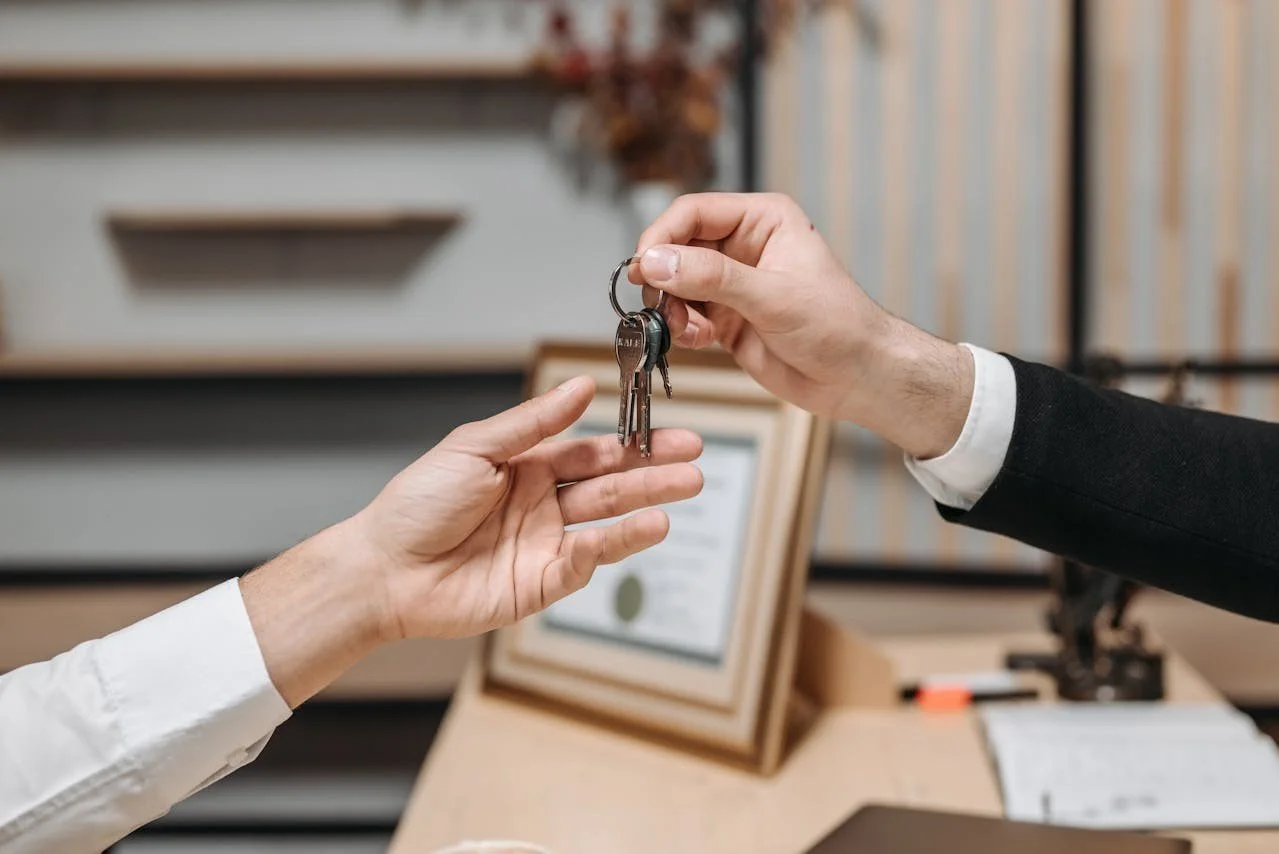Why Top Lawyers Still Feel Like Frauds (And How to Stop)
Reclaim Your Practice, Rediscover Your Passion
You've built a successful legal practice that others aspire to. You've won the challenging cases, earned the respect of peers, and achieved what many only dream of. Yet something feels missing—the freedom and fulfillment you expected to accompany this success haven't materialized.
I stood in a federal courthouse representing a trucking company, feeling exactly this way. My client was a poorly educated driver facing severe injury claims. The opposing attorney was accomplished and respected. The insurance company's message was clear: lose this case, and they'd pull all their work. Despite my external success—top rankings in law school, prestigious clerkship, winning record—I felt like a fraud about to be exposed.
When the jury found for my client, declaring the plaintiff at fault, I realized something profound. The gap between my internal fears and external reality wasn't unique to me—it plagues even the most successful attorneys in ways traditional legal education never addresses.
It's not for lack of trying to find balance. You may have worked longer hours, considered switching practice areas, taken vacations, hoping to return refreshed, or invested in work-life balance books. But these approaches miss something crucial: the very qualities that made you successful—your perfectionism, responsiveness, and problem-solving prowess—have inadvertently created a practice that controls you rather than serves you.
This blog post reveals how to transform your legal career from a stress-driven obligation into a vehicle for both professional excellence and personal freedom—without compromising your standards or client service.
The Perfectionist's Prison: When Success Becomes a Trap
The very qualities that drive legal success can paradoxically become the source of professional misery for accomplished attorneys.
The Success Paradox That Traps High Achievers
The legal profession attracts driven individuals who tie their self-worth to performance. According to the American Bar Association, lawyers experience psychological distress at rates much higher than other professionals. Imposter syndrome ranks among our biggest challenges.
Growing up as an overweight kid with thick glasses, I became a perfectionist to overcome bullying. This strategy served me academically—ranking first in high school, college, and law school—but created an internal prison where no success silenced the doubt.
When I won twelve consecutive trucking cases, my confidence was justified. Instead, each victory raised the stakes for the following case. The voice in my head grew louder: "You got lucky. The next one will expose you." This is the Success Paradox: the more you achieve, the more pressure you feel to maintain that performance level.
When Internal Obsession Meets External Reality
Early in my career, I handled an employment case against Baltimore's most powerful law firm. I spent countless hours crafting what I thought was an airtight opposition to their summary judgment motion. The judge granted their motion anyway, dismissing my case entirely.
I obsessed for weeks: What could I have done differently? How could I have better served my client? The self-torture continued until I learned years later that the same judge had granted summary judgment against employees in every employment case he'd ever heard.
This taught me that sometimes our "failures" have nothing to do with competence and everything to do with factors beyond our control. Yet perfectionistic lawyers rarely grant themselves this perspective.
Learning from Mentors: A Different Way Forward
The most profound lessons often come from watching how seasoned attorneys carry themselves through daily practice.
When I joined Huesman, Jones, and Miles, two mentors showed me alternative approaches. Dick Lerch was an incredible trial attorney whose gentle, unassuming manner contradicted my assumptions about courtroom success. He connected with juries through warmth and humanity rather than aggressive posturing, teaching me that authenticity trumps perfectionism.
Joe Huesman, an ex-Marine who fought in Korea's brutal Battle of Chosin Reservoir, embodied unwavering commitment while maintaining internal peace. His lesson was profound: stop worrying about what others think of you. He showed me how to channel fierce advocacy without turning intensity inward.
These mentors proved that effective lawyering combines warmth with courage, and that internal peace and professional excellence enhance each other.
The Breakthrough Moments That Changed Everything
Specific courtroom experiences finally revealed the gap between my perceived limitations and actual capabilities.
Baltimore City: When Everything I Believed Was Wrong
My first solo jury trial tested everything I thought I knew about myself. Representing a property owner against one of Maryland's most inflammatory attorneys in plaintiff-friendly Baltimore City, I filed seven motions for mistrial as he repeatedly made inappropriate statements.
My internal critic worked overtime: "You're annoying the judge. The jury thinks you're petty. You can't match his experience." When the jury returned a defense verdict, I realized my inner critic had been wrong about everything. My "inexperience" hadn't mattered. My "annoying" objections had protected my client's interests.
The Collaboration Discovery
Years later, a law school classmate invited me to co-counsel on a mold property damage case. Initially worried about our different styles—I was methodical while he was dynamic—those differences became our greatest asset. When we secured a $300,000 verdict (triple our settlement demand), I learned that collaboration often produces better outcomes than solo perfectionism.
One senior attorney taught me lasting wisdom when I kept calling him "Mister" out of deference: "Gary, you are entitled to the same respect I am. Don't ever forget that." Professional respect begins with self-respect.
The Free Lawyer Framework: Transforming Your Relationship with Your Practice
The solution isn't working less or lowering standards—it's fundamentally changing how you approach law from the inside out.
Redefining Professional Success
Traditionally, lawyers measure success through external metrics: billable hours, case outcomes, and partnership tracks. While these have value, they create exhausting cycles where self-worth depends on variables often beyond our control.
The Free Lawyer approach starts with a fundamental shift: success means building a practice that serves your life goals rather than consuming them. This doesn't mean lowering standards—it means creating sustainable systems that allow excellent legal practice while maintaining internal peace and personal fulfillment.
The Internal Authority Principle
Most lawyers operate from External Authority—constantly seeking validation from judges, opposing counsel, clients, and partners. This creates anxiety because we can never completely control others' opinions.
The Free Lawyer framework develops Internal Authority: confidence based on your preparation, competence, and commitment to client service. Your value comes from your skills and dedication, not from others' momentary opinions. When operating from this foundation, courtroom pressure decreases significantly because your worth isn't on trial—only the legal issues are.
This shift transforms how you approach high-pressure moments. Instead of "If I lose, they'll pull all their work," you think, "I'm thoroughly prepared to represent this client's interests professionally and competently." The external circumstances remain identical, but your internal experience—and often your performance—improves dramatically.
Creating Professional Boundaries That Enhance Service
Many attorneys resist boundaries, fearing compromised client service. Four decades of practice taught me the opposite: clear boundaries actually improve client outcomes because they allow you to operate from strength rather than desperation.
Professional boundaries might include specific communication windows that honor both urgent client needs and your sustainable practice requirements. For instance, establishing that non-emergency communications receive responses within 24 business hours, while maintaining availability for true emergencies.
Defined representation scope prevents mission creep that exhausts both attorney and client resources. When clients understand exactly what excellent service looks like within your practice parameters, they actually feel more secure and well-served.
Sustainable workload management ensures you can deliver consistently high-quality work rather than sporadic bursts of excellence followed by periods of exhaustion. This consistency benefits clients more than the feast-or-famine approach many attorneys unconsciously adopt.
The Presence Practice
One powerful Free Lawyer tool is being completely present in whatever you're doing. When reviewing documents, review them thoroughly. When in court, be entirely present. When with family, be genuinely there.
This requires intentional practice for attorneys whose minds constantly race between past cases and future deadlines. Presence reduces anxiety by grounding you in what you actually control: your current actions and responses.
The trucking case I mentioned earlier could have been completely different with this approach. Instead of mentally rehearsing disaster scenarios or second-guessing past decisions, presence would have kept me focused on the immediate task: representing my client competently in that moment.
Presence also improves decision-making quality. When your attention isn't scattered across multiple timeframes and scenarios, you process information more clearly and respond more effectively to unexpected developments.
The Collaboration Advantage
The legal profession often promotes a myth of the solo warrior attorney, but isolation actually limits both professional effectiveness and personal satisfaction. Strategic collaboration, as seen in my experience with the mold case, creates synergy that benefits all parties.
Collaboration doesn't mean compromising your standards or diluting your expertise. Instead, it means recognizing that different attorneys bring different strengths, and the right partnerships can enhance outcomes for clients while making practice more enjoyable for attorneys.
This principle extends beyond formal co-counsel relationships. Building authentic collegial relationships provides professional support, different perspectives on challenging cases, and reminders that you're part of a broader professional community working toward similar goals.
The Sustainable Excellence Model
Traditional legal thinking suggests that excellence requires suffering—long hours, constant stress, personal sacrifice. The Free Lawyer framework challenges this assumption with Sustainable Excellence: the idea that your best work emerges from a place of balance rather than burnout.
Sustainable Excellence recognizes that legal practice is a marathon, not a sprint. Attorneys who maintain their physical health, mental clarity, and emotional balance consistently outperform those who sacrifice everything for short-term achievements.
This model includes strategic rest as a professional tool rather than a luxury. Proper sleep, regular exercise, and genuine downtime actually enhance cognitive function, creativity, and problem-solving ability—all crucial for excellent legal work.
It also encompasses what I call "cognitive diversity"—exposing yourself to experiences outside law that broaden your perspective and prevent tunnel vision. Whether through reading, travel, hobbies, or community involvement, these activities often provide insights that improve your legal thinking.
The Freedom Integration Process
Implementing the Free Lawyer framework requires what I call Freedom Integration: gradually aligning your practice habits with your values and long-term goals rather than making dramatic overnight changes that create instability.
Start by identifying one specific area where your current approach creates unnecessary stress or compromises your well-being. Apply Internal Authority principles in that context, practicing the new approach consistently for several weeks before expanding to additional areas.
For example, if client communication currently creates anxiety, implement specific response timeframes and communication protocols. Practice operating from preparation and competence rather than fear and reactivity. Notice how this changes both your stress levels and client interactions.
As you build confidence in one area, gradually expand the approach to other aspects of your practice. This methodical implementation prevents overwhelm while building sustainable new habits.
The Ripple Effect
When you operate from the Free Lawyer framework, the benefits extend far beyond your personal experience. Clients sense the difference between working with an attorney who practices from anxiety versus one who practices from confident competence. They feel more secure and trust your guidance more readily.
Junior colleagues observe your modeling of sustainable excellence and learn that professional success doesn't require personal sacrifice. This helps elevate the entire profession's approach to practice management and work-life integration.
Family members experience more presence and engagement when you're not constantly consumed by practice-related stress. The energy you previously spent managing anxiety becomes available for relationships and activities that truly matter to you.
Measuring True Success
The Free Lawyer framework includes expanded success metrics that encompass both professional achievement and personal fulfillment. While traditional measures like case outcomes and financial performance remain important, they're balanced with indicators of sustainable practice.
These might include energy levels throughout the day, quality of sleep, satisfaction in client relationships, enjoyment of actual legal work, and integration with family and community life. When these indicators improve alongside traditional metrics, you know you're building truly sustainable success.
Many attorneys discover that reducing internal pressure actually improves their case results because they think more clearly and respond more effectively under stress. Professional freedom enhances rather than compromises professional excellence—they're synergistic rather than competitive.
The Legacy You're Building
Transformation from anxiety-driven practice to confident competence creates ripple effects extending far beyond individual careers.
Looking back at forty years in legal practice, the anxious young attorney adjusting his tie in the courthouse bathroom was already capable of the success he feared he couldn't achieve. What was missing wasn't competence—it was internal recognition of that capability.
When individual attorneys break free from perfectionist prisons, ripple effects extend beyond personal practices. Junior associates observe confident mentors and learn that self-assurance can coexist with humility. Clients sense authentic conviction and trust guidance more readily.
Now, living in Pinehurst, North Carolina, with my wife Brenda and our English Goldens, I've learned that professional excellence and personal peace can indeed coexist. Our five children and six grandchildren remind me daily that life extends far beyond the courtroom.
This is where the Free Lawyer approach comes in. Drawing from four decades as a trial lawyer and managing partner, I've developed a transformative process specifically designed for successful attorneys like you. Unlike generic coaching, this approach addresses the unique mindset and systems that define accomplished lawyers.
Together, we'll establish firm professional parameters that maintain excellent client service while ensuring your practice reflects your authentic priorities. You'll reconnect with your original passion for law and develop a sustainable system that transforms your practice from a demanding obligation into a vehicle for personal freedom.
Conclusion
Standing in that federal courthouse years ago, I never imagined that my greatest professional breakthrough wouldn't come from mastering legal precedents or courtroom tactics—it would come from finally understanding that my worth as an attorney was never in question.
You've already built the successful practice others dream of achieving. You've proven your capabilities countless times through complex cases, satisfied clients, and peer recognition. The missing piece isn't more success—it's the freedom to enjoy the success you've already created.
The strategies outlined here emerge from four decades of practicing law, managing partners, and coaching hundreds of attorneys who felt trapped by their own achievements. These aren't academic theories but practical solutions forged in real courtrooms, tested through actual client relationships, and refined through the daily challenges every attorney faces.
Your legal education taught you to analyze evidence, build compelling arguments, and advocate fiercely for others. Now it's time to apply those same skills to your own professional life. Examine the evidence of your competence. Build a compelling case for your right to practice with both excellence and peace. Advocate as fiercely for your own well-being as you do for your clients.
The transformation from a practice that controls you to one that serves you isn't about working less—it's about working from a place of authentic confidence rather than hidden fear. When you make this shift, something remarkable happens: your practice becomes the vehicle for personal freedom you originally hoped it would be.
Ready to reclaim your practice and rediscover your passion? Ready to become a Free Lawyer?
If you are interested in learning more, you can schedule a complimentary discovery call here.




